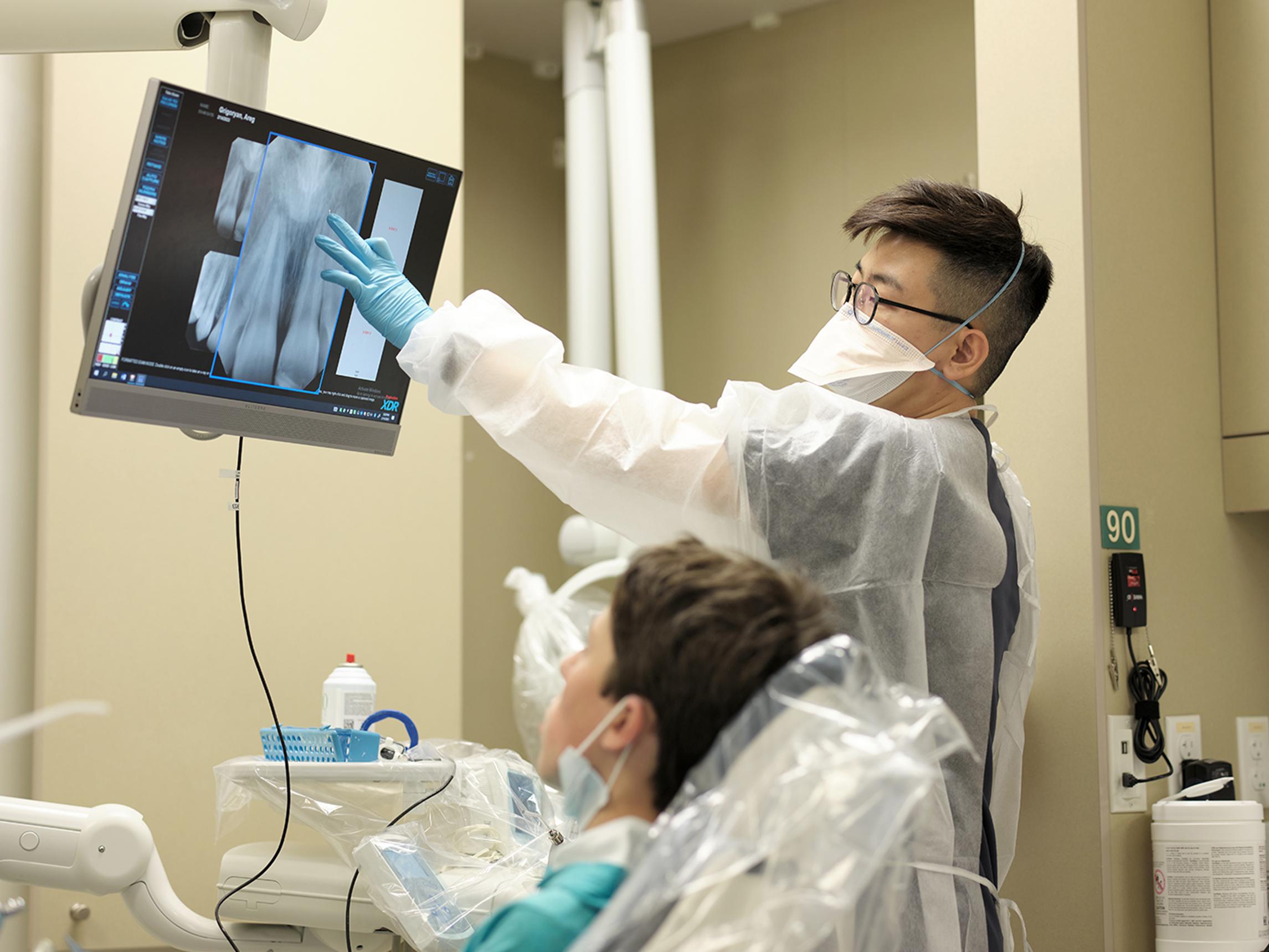An Overview to Common Oral Conditions That Require a Dental professional's Treatment
Recognizing the series of dental problems that demand expert treatment is paramount for preserving optimal oral health. Toothaches, for instance, can be symptomatic of severe concerns such as cavities, fractured teeth, or abscesses, each requiring particular treatments like dental fillings or origin canals. Gum disease, from the onset of gingivitis to a lot more serious periodontitis, underscores the relevance of normal dental exams and cleansings. Affected knowledge teeth and jaw conditions can introduce significant pain and problems. Making sure prompt brows through to the dental professional can reduce these concerns successfully, yet exactly what are the signs and treatments included?
Toothaches
Toothaches are a typical dental problem that can vary from mild pain to severe pain, frequently suggesting an underlying issue that requires professional focus. This discomfort can come from a range of sources, including tooth decays, broken or fractured teeth, and dental abscesses. Each of these problems poses substantial threats if left unattended, potentially bring about more severe complications.
Dental dental caries, additionally known as cavities, are caused by the buildup of plaque that wears down tooth enamel, leading to openings or pits in the affected teeth. Abscesses are painful infections at the root of a tooth or between the gum tissue and a tooth, commonly resulting from serious decay or neglected cavities.
Effective treatment of toothaches includes resolving the source. This may consist of fillings for cavities, crowns for split teeth, or origin canals and antibiotics for abscesses. Very early treatment by an oral expert can prevent more damage and ease pain, making sure ideal dental wellness.
Gum Tissue Illness
Periodontal condition, a prevalent yet commonly forgotten dental condition, materializes through inflammation and infection of the periodontals and sustaining tissues. If left untreated, gingivitis can progress to periodontitis, an extra severe form identified by the destruction of the supporting bone and connective tissue, ultimately leading to tooth loss.
The key reason of periodontal condition is bacterial plaque, a sticky, colorless movie that continuously develops on teeth. Poor dental hygiene, smoking cigarettes, hereditary tendency, and certain clinical conditions, such as diabetes mellitus, can worsen the risk of creating periodontal condition. Regular dental exams are essential for early detection and monitoring of this problem.
Treatment for gum tissue illness ranges from professional dental cleaning and scaling to even more sophisticated procedures like origin planing and gum surgery, depending upon the intensity. Maintaining good oral hygiene techniques, including brushing twice daily, flossing, and utilizing an antiseptic mouth wash, can significantly minimize the threat of gum tissue illness and advertise much healthier gum tissues.
Tooth Cavities
Dental caries, likewise called tooth decays, are a common dental problem defined by the destruction of tooth enamel as a result of acid-producing microorganisms in the mouth. These germs thrive on sugars and starches from food and drinks, producing acids that slowly wear down the enamel, resulting in cavity formation.
Early-stage tooth cavities might disappoint signs and symptoms, but as they progress, they can create toothache, level of sensitivity to cool or hot, visible openings or pits in the teeth, click resources and discoloration. If left without treatment, cavities can penetrate deeper layers of the tooth, potentially causing serious pain, infection, and even tooth loss.
Avoiding tooth cavities entails a mix of great oral hygiene techniques and dietary habits. Regular cleaning with fluoride tooth paste, flossing, and routine dental examinations are critical. Dental professionals might also advise additional preventative procedures, such as fluoride treatments and dental sealers, to secure teeth from decay.
Small tooth cavities can be resolved with oral fillings, which recover the tooth's structure. More innovative cases might require crowns or even origin canal therapy if the decay has you can look here actually gotten to the tooth's pulp.

Impacted Wisdom Teeth
Influenced wisdom teeth are a prevalent oral problem that happens when the third molars, frequently described as wisdom teeth, fail to totally arise or align properly within the mouth. This condition commonly arises from inadequate area in the jaw or an uncommon development angle of the teeth. Influenced wisdom teeth can result in a variety of complications, including pain, damage, and infection to surrounding teeth.
When wisdom teeth come to be influenced, they are usually partially appeared or stay entirely underneath the gum tissue line. This partial eruption can produce a pathway for microorganisms to enter the periodontals, resulting in infections that show up as swelling, discomfort, and even high temperature. Furthermore, affected wisdom teeth can apply pressure on neighboring teeth, possibly creating crowding or changing.
A detailed dental examination, normally including X-rays, is important for diagnosing affected wisdom teeth. Routine oral examinations are suggested to keep track of the condition and keep oral health.
Jaw Conditions
Jaw conditions, jointly called temporomandibular joint (TMJ) disorders, encompass a variety of problems that influence the jaw joint and bordering muscular tissues. These conditions can materialize through signs and symptoms such as discomfort or inflammation in the jaw, difficulty chewing, a clicking or popping noise when opening or closing the mouth, and also chronic headaches. TMJ disorders can occur from various factors, consisting of arthritis, jaw injury, or habitual actions like teeth grinding or jaw clenching.
Medical diagnosis of TMJ problems generally involves an extensive examination by a dental professional, consisting of a official site checkup of the jaw, dental X-rays, and sometimes progressed imaging strategies like MRI or CT checks to analyze the joint's problem. Treatment alternatives differ depending upon the severity of the condition. Non-invasive strategies such as physical therapy, dental splints, and medicines targeted at minimizing swelling and pain are frequently first-line therapies. In more extreme instances, surgical treatments might be needed to fix structural concerns within the joint.
Very early intervention by a dental expert is critical to avoid the development of TMJ conditions and to maintain general dental wellness. Individuals experiencing consistent jaw pain or disorder need to seek punctual analysis and treatment.
Verdict
Toothaches commonly suggest underlying problems such as dental caries, fractured teeth, or abscesses, requiring prompt treatment. Impacted knowledge teeth and jaw disorders likewise require professional focus to relieve pain and avoid further difficulties.
Oral dental caries, also recognized as caries, are created by the build-up of plaque that deteriorates tooth enamel, leading to holes or pits in the impacted teeth. Abscesses are uncomfortable infections at the root of a tooth or in between a tooth and the periodontal, commonly resulting from extreme decay or untreated tooth cavities.

In addition, influenced knowledge teeth can exert stress on surrounding teeth, possibly causing crowding or shifting.